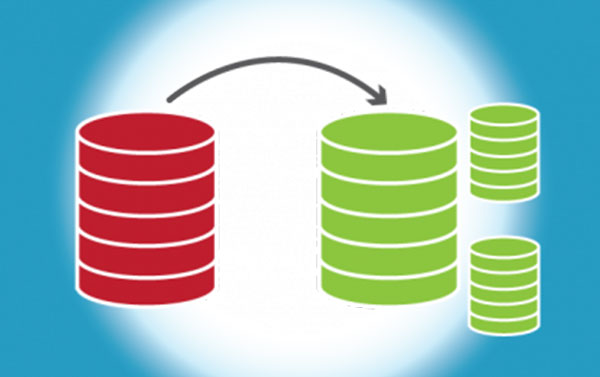
Alcor enables customers to solve complex business problems using agile and innovative solutions. We have a persistent record of delivering Oracle solutions that meet or exceed customers’ requirements for performance, effectiveness and value. Our Oracle Technology business model is about thorough knowledge of Oracle technologies and business processes.
Alcor provides a full range of IT consulting services for applications development, database development, legacy systems upgrade and migration, third party software implementation and systems integration to new technology, implementation, and support of Oracle Technology. With the continued adoption of Oracle technology by commercial and government organizations nationwide, Alcor provides clients with the unrivaled Oracle expertise needed to ensure success with strategic IT initiates. Leveraging a dedicated focus on Oracle technology, a comprehensive suite of Oracle-centric services, and a commitment to practical innovation, Alcor gives customers the extra advantage they need to reap a strong return from Oracle investments. Alcor provides clients with the expertise of seasoned professionals possessing a strong understanding of Oracle's technical complexities and capabilities.
Business analytics has grown as an indispensable component of the Business with continuous iterative exploration and investigation of past business performance to gain insight and drive business planning. Business analytics focuses on developing new insights and understanding of business performance based on data and statistical methods. Business analytics makes extensive use of statistical analysis, including explanatory and predictive modeling, and fact-based management to drive decision making. Alcor consultants and architects design analytical reporting solutions for our clients leveraging products like SAP Crystal reports, Tableau, Incorta and SSIS, SSRS.
 SAP Crystal solutions allow individual users as well as Small and Medium-sized businesses to leverage a scalable on-premise Analytics tool. With SAP Crystal Reports, one can create powerful, richly formatted, and dynamic reports from virtually any data source, delivered in dozens of formats, in up to 28 languages. SAP Crystal Reports turns almost any data source into interactive, actionable information that can be accessed offline or online, from applications, portals and mobile devices.
SAP Crystal solutions allow individual users as well as Small and Medium-sized businesses to leverage a scalable on-premise Analytics tool. With SAP Crystal Reports, one can create powerful, richly formatted, and dynamic reports from virtually any data source, delivered in dozens of formats, in up to 28 languages. SAP Crystal Reports turns almost any data source into interactive, actionable information that can be accessed offline or online, from applications, portals and mobile devices.
With Tableau Server, Business can extend the value of data across the entire organization and empower the business with the freedom to explore data in a trusted environment—without limiting to pre-defined questions, wizards, or chart types. IT organizations implement Tableau for its ease of deployment, robust integration, simplicity of scalability, data protection and excellent reliability.
With Incorta’s Direct Data Mapping engine, Business gets real-time aggregation of large, complex business data without needing a data warehouse. Analyzing large volumes of complex business data spanning ERP, cloud applications and other business systems required the construction of a costly, time-consuming data warehouse. But this will not be a case anymore with Incorta as the platform.
SQL Server Reporting Services (SSRS) is a server-based report generating software system from Microsoft. It is part of a suite of Microsoft SQL Server services, including SSIS (SQL Server Integration Services). SQL Server Integration Services (SSIS) is a component of the Microsoft SQL Server database software that can be used to perform a broad range of data migration tasks. Our Database team can help you whether you're looking for a complete solution, expert guidance for your team as they implement a system or a review of an existing system.
Alcor propels your enterprise to realize long-term and measurable benefits from your Oracle investments. The long-term services provided by Alcor range from business planning, solution architecture, implementation and integration services, to managed services and even mission critical emergency response. Alcor blends the right level of people, processes and technologies to solve the complex mission critical business challenges of our clients.
Alcor leverages cloud migration as the process of moving data, applications or other business elements to the cloud computing environment. One common model is the transfer of data and applications from a local, on-premises data center to the public cloud like Amazon Web Services (AWS) Cloud Computing environment. However, a cloud migration also entails moving data and applications from one cloud platform or provider to another - cloud-to-cloud migration. There is also migration to uncloud - reverse cloud migration or declouding - where data or applications are moved off the cloud and back to a local data center.
The goal of our cloud migration strategy is to host applications and data in the most effective IT environment possible, based on factors such as cost, performance and security. The steps or processes we follow during cloud migration vary based on factors such as the type of migration our client wants to perform and the specific resources it wants to move. We evaluate performance and security requirements, calculate costs and make any necessary organizational changes in coordination with our client. We proactively address the issues of interoperability, data and application portability, data integrity and security, and business continuity.
Over 65,000 customers worldwide rely on Oracle's complete application solutions to achieve superior results. Oracle Applications also provide complete choice and a secure path for customers to benefit from the latest technology advances. Oracle Applications Unlimited is Oracle's commitment to customer choice through continuous investment and innovation in current applications offerings. The powerful combination of complete solutions and complete choice drives better business performance and helps customers tailor their enterprise business and IT strategy, optimize their IT investments and use IT as a strategic point of differentiation.
Oracle Application Express (Oracle APEX), is the low code web application development tool for the Oracle database. Application Express enables you to design, develop and deploy beautiful, responsive, database-driven applications, either on-premises or in the cloud. Oracle Application Express combines the qualities of a low code tool such as productivity, ease of use, and flexibility, with the qualities of an enterprise development tool such as security, integrity, scalability, availability and built for the web.
Azure SQL Database is a relational database-as-a-service (DBaaS) based on the latest stable version of Microsoft SQL Server Database Engine. SQL Database is a high-performance, reliable, and secure database you can use to build data-driven applications and websites in the programming language of your choice, without needing to manage infrastructure. SQL Database is a general-purpose relational database managed service in Microsoft Azure that supports structures such as relational data, JSON, spatial, and XML. SQL Database also provides options such as columnstore indexes for extreme analytic analysis and reporting, and in-memory OLTP for extreme transactional processing. Microsoft handles all patching and updating of the SQL code base seamlessly and abstracts away all management of the underlying infrastructure.
 We migrate on-premises SQL Server 2005 or later database to a single or pooled database in Azure SQL Database. We upgrade the old Microsoft version to new version - SQL Server 2005 to SQL Server 2008, SQL Server 2008 to SQL Server 2012 or SQL Server 2012 to SQL Server 2016. We migrate Oracle databases to SQL Server, Azure SQL DB, or Azure SQL Data Warehouse. SQL Server Migration Assistant (SSMA) for Oracle is a comprehensive environment that helps us quickly migrate Oracle databases to SQL Server, Azure SQL DB, or Azure SQL Data Warehouse. By using SSMA for Oracle, we review database objects and data, assess databases for migration, migrate database objects to SQL Server, Azure SQL DB, or Azure SQL Data Warehouse, and then migrate data to SQL Server, Azure SQL DB, or Azure SQL Data Warehouse.
We migrate on-premises SQL Server 2005 or later database to a single or pooled database in Azure SQL Database. We upgrade the old Microsoft version to new version - SQL Server 2005 to SQL Server 2008, SQL Server 2008 to SQL Server 2012 or SQL Server 2012 to SQL Server 2016. We migrate Oracle databases to SQL Server, Azure SQL DB, or Azure SQL Data Warehouse. SQL Server Migration Assistant (SSMA) for Oracle is a comprehensive environment that helps us quickly migrate Oracle databases to SQL Server, Azure SQL DB, or Azure SQL Data Warehouse. By using SSMA for Oracle, we review database objects and data, assess databases for migration, migrate database objects to SQL Server, Azure SQL DB, or Azure SQL Data Warehouse, and then migrate data to SQL Server, Azure SQL DB, or Azure SQL Data Warehouse.
Medicine is an information-rich enterprise. A greater and more seamless flow of information within a digital health care infrastructure, created by electronic health records (EHRs), encompasses and leverages digital progress and can transform the way care is delivered and compensated. With EHRs, information is available whenever and wherever it is needed.
The Health Information Technology for Economic and Clinical Health (HITECH) Act, a component of the American Recovery and Reinvestment Act of 2009, represents the Nation’s first substantial commitment of Federal resources to support the widespread adoption of EHRs. As of August 2012, 54 percent of the Medicare- and Medicaid-eligible professionals had registered for the meaningful use incentive program.
An electronic health record (EHR) implementation plan is a comprehensive set of strategies and steps used by a health care organization when preparing for and executing the adoption of an electronic-based health care system. EHRs and the ability to exchange health information electronically helps you provide higher quality and safer care for patients while creating tangible enhancements for your organization. Electronic Health Records (EHRs) are the first step to transformed health care.
Despite the obvious benefits of a holistic HIT implementation strategy, EHR implementation isn’t always easy. Getting an entire organization on board and finding the time and resources to make the change is a major undertaking.
The status of your current practice needs to be analyzed in terms of efficiency, effectiveness and organization. If your current workflow is well mapped out, the workflow on an EHR should continue that trend.
Planning for the EHR includes an analysis of tasks that will be started, maintained or eliminated. Planning is appropriate for conversion of paper charts to electronic records, keeping in mind federal regulations regarding destruction of protected patient information. Format for demographics, patient data and subsequent visits on the paper chart may be changed on the EHR to improve flow and storage of information.
Before implementing EHR, healthcare providers need to consider some potential barriers in their way. Addressing the barriers from the onset of EHR implementation will help the organization set up realistic expectations and manageable goals.
Our consultants would focus on leveraging the potential of EHRs to enhance patient care, improve productivity and reduce administrative costs. We address the major challenges by:
The EHR and associated processes need to be constantly evaluated to assure efficiency and accuracy. Workflow and templates may need to be changed to improve outflow. The staff may need to be reorganized to account for changes and improvements in patient flow and data management.
Though the process of changing from a paper file system to an EHR may seem daunting, this results in an increase in efficiency and patient satisfaction, improvement in productivity, increase in data utilization, and long-term reduction in costs. A well-organized and thoroughly planned process is necessary for a smooth transition and implementation of an EHR system and our team stands to achieve this goal.